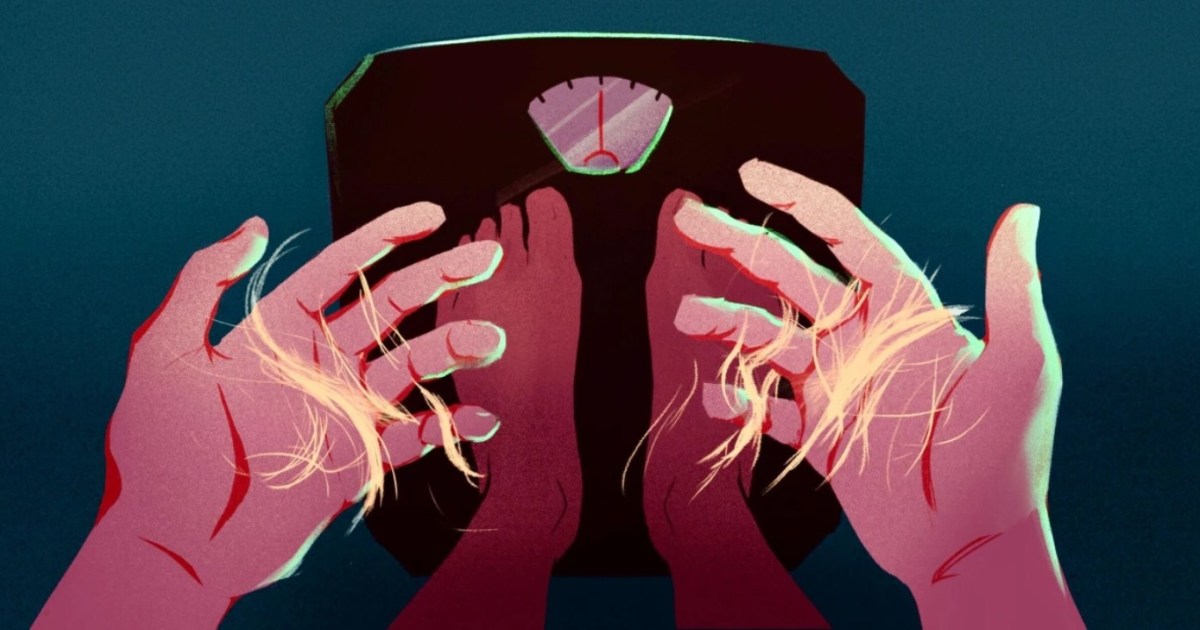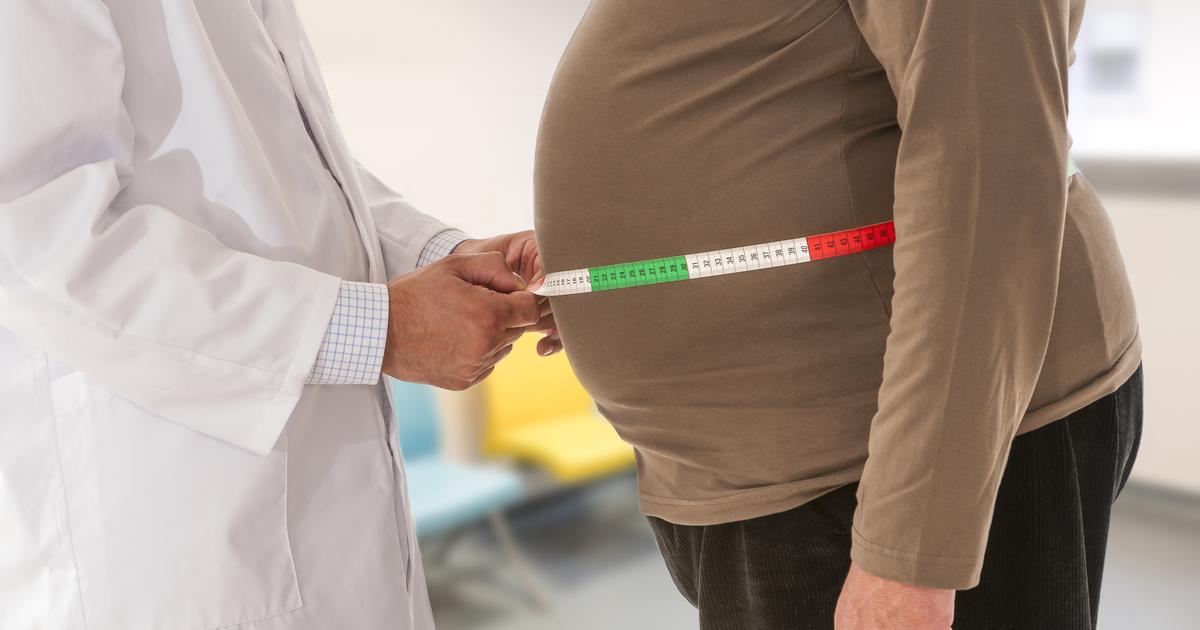By Kaitlin Sullivan -
NBC News
As drugs like Wegovy and Ozempic become more popular for weight loss, the pounds aren't the only thing lost: Social media groups of people taking these drugs are also including messages about hair loss.
“What surprises people is that there are no symptoms on the scalp.
It doesn't hurt, it doesn't sting, but you can run your hands through your hair and you have a handful of hair.
It can be really unnerving to see that,” said Dr. Susan Massick, a dermatologist at The Ohio State University, who has seen patients who have lost their hair after weight loss surgery.
[Study Reveals That Losing Weight, Even Even Gaining It Back, Is Good For Your Heart In The Long Run]
Semaglutide—better known by the brand names Ozempic and Wegovy—and tirzepatide, sold under the trade name Mounjaro, were originally intended for people with type 2 diabetes. However, the drugs are frequently prescribed for weight loss. weight.
But these drugs are also frequently prescribed for weight loss.
Wegovy is approved for weight loss by the Food and Drug Administration (FDA) while Ozempic and Mounjaro are given off-label.
Although hair loss is a shocking side effect, Dr. Vijaya Surampudi, associate director of the UCLA Weight Management Program in Los Angeles, says it's relatively rare among people taking these drugs.
Hair loss is not mentioned as a side effect of Ozempic, but in clinical trials with Wegovy, 3% of people who took it reported that they had lost their hair, compared to 1% of those who received a placebo.
(Although Ozempic and Wegovy are the same drug, Wegovy is given at a higher dose.)
Failed diets?
Why many do not work and how to remedy it, according to a nutritionist
April 21, 202303:04
In a clinical trial of the effects of tirzepatide on weight loss, nearly 6% of people taking the highest dose experienced alopecia (a generic word for any type of hair loss), compared with 1% of who received placebo.
[Doctors want to weigh adult women to prevent disease. Why can it be harmful to them?]
The manufacturer of tirzepatide, Eli Lilly, said in a statement that the hair loss seen in the clinical trial was generally short-lived.
"Hair loss is a side effect that has been associated with significant weight loss in many previous clinical trials for the treatment of obesity," the statement said.
Novo Nordisk, maker of Ozempic and Wegovy, did not respond to a request for comment.
These drugs act on receptors in the body involved in the production of insulin and the regulation of digestion.
None of them is related to hair growth.
“The hair loss is unlikely to be related to the drugs,” says Surampudi, who has counseled patients who have experienced hair loss while taking the drugs, “but more likely to be related to weight loss than it is consequence of these drugs.
Hair loss is common when you lose a lot of weight
Hair loss during a time of stress, be it pregnancy, divorce, or drastic weight loss, is extremely common.
It even has its own name: telogen effluvium.
[New guidelines for treating childhood obesity include drugs and surgery for the first time]
Because semaglutide and tirzepatide suppress appetite, people often eat much less than their bodies are used to eating while taking the drugs.
“There is a shock to the system,” says Surampudi.
While taking the medication, people can lose between 5% and 20% of their body weight within six to twelve months, before weight loss plateaus.
“It's a big change for anyone,” says Massick.
Exercising outdoors has more benefits than doing it in a gym or home
April 13, 202300:30
Under normal conditions, people constantly shed and grow hair.
But a shock causes the body to reserve resources for essential functions.
Hair growth goes into what is known as the resting phase: the hair continues to fall but, at the same time, it stops growing.
The phenomenon is temporary and does not affect everyone.
“Usually, it takes three months from when you stop losing weight, when you hit a plateau, until the loss slowly starts to disappear and the hair grows back,” Massick explains.
[Study Reveals Quitting Exercise Is Linked to Memory Loss and Brain Health]
Dr. Andrew Kraftson, director of Michigan Medicine's weight loss program, compares this phenomenon to that of a tree in autumn.
The trees lose their leaves but do not replace them with buds until spring.
Hair loss is a common side effect of significant weight loss over a short period of time, and people undergoing bariatric, or weight-loss, surgery are often warned in advance that this could be an effect. secondary.
“It is very common for a lot of hair to be lost after a bariatric operation.
It's one of the biggest complaints I hear, and people worry about going bald," explains Kraftson.
Experts say that won't happen just because of weight loss.
“With telogen effluvium, you don't lose all your hair, you don't go bald and it grows back, so it's not a permanent situation,” Massick explains, adding that once the weight stabilizes, the body returns to normal. allocate resources to non-essential functions, such as hair growth.
Can hair loss be prevented by losing weight?
Although there are some cases where genetic hair loss or hair loss due to another condition coincides with telogen effluvium, in which case the hair doesn't regrow on its own, this is rarely the case, Surampudi says.
More often than not, by eating less while taking weight loss medication, you are not taking in enough vital nutrients, which can also contribute to hair loss.
Priya Jaisinghani, MD, an endocrinologist at NYU Langone in New York, says that inadequate diet, caloric restriction, or protein restriction can contribute to the hair loss seen with significant weight loss.
[Moderate exercise for 11 minutes a day lowers risk of early death, study finds]
“I advise my patients early on to prevent hair loss with weight loss,” he explained.
“But I have a lot of patients from outside providers who come in with these symptoms and we talk about protein intake and rate of weight loss,” she added.
Massick agrees that it's important to discuss diet with your doctor.
Making sure you include enough protein, iron, B vitamins - especially biotin - and zinc could help prevent hair loss if malnutrition is a factor.
Iron is important, especially during menstruation, Surampudi recalled, and everyone could use a vitamin D supplement while taking weight-loss medications.
They all offered guarantees to people who suffer from hair loss along with weight loss.
If enough nutrients are ingested, "the hair will recover and not suffer permanent damage," Kraftson said.







